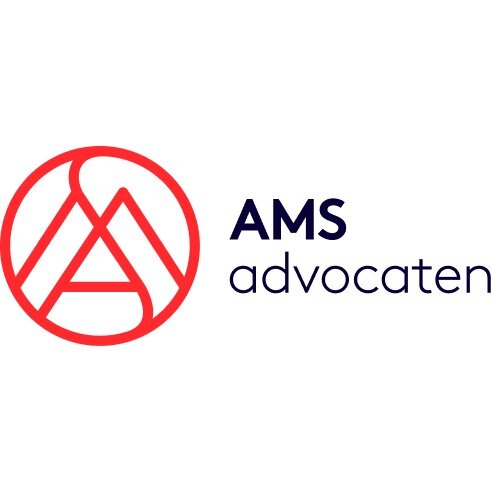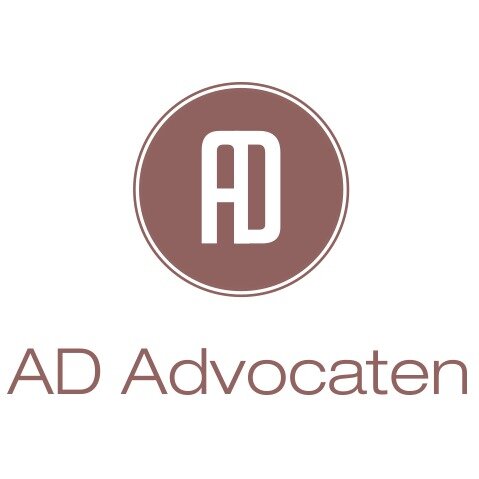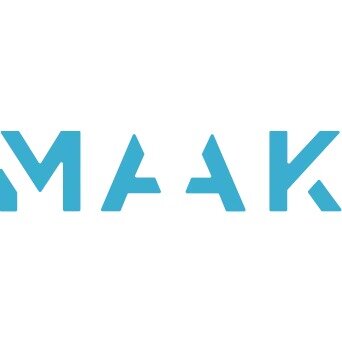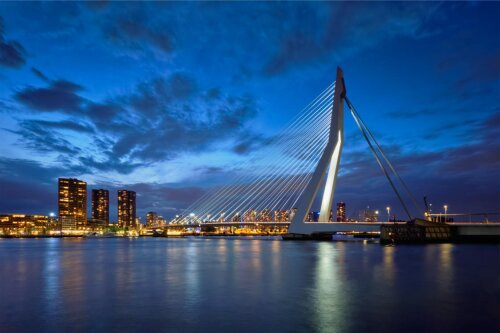Best Sanctions & Export Controls Lawyers in Amsterdam
Share your needs with us, get contacted by law firms.
Free. Takes 2 min.
List of the best lawyers in Amsterdam, Netherlands
Netherlands Sanctions & Export Controls Legal Articles
Browse our 1 legal article about Sanctions & Export Controls in Netherlands written by expert lawyers.
- EU Sanctions and Export Controls for Dutch Trading Firms
- Dutch companies must comply with both EU regulations and the Dutch Sanctions Act 1977, which imposes strict criminal and administrative penalties for violations. An Internal Compliance Program (ICP) is the primary legal defense for demonstrating due diligence to Dutch authorities during an audit or investigation. Dual-use goods require specific licenses... Read more →
About Sanctions & Export Controls Law in Amsterdam, Netherlands
Sanctions and export controls are essential aspects of international trade regulation, particularly for businesses and individuals operating in Amsterdam, Netherlands. Sanctions refer to restrictions imposed by governments or international organizations on specific countries, entities, or individuals, often for reasons related to foreign policy, security, or human rights. Export controls regulate the transfer of goods, technology, and services across borders to safeguard national security and comply with international obligations.
In Amsterdam, and across the Netherlands, sanctions and export controls are enforced through a combination of European Union regulations and Dutch national laws. Compliance is mandatory for all parties involved in the export or re-export of goods, technology, software, and related services. Whether you are an international trader, business owner, or individual, understanding your obligations is crucial to avoid severe penalties or reputational harm.
Why You May Need a Lawyer
Dealing with sanctions and export controls can be complex and risky. Here are some common situations where legal assistance may be needed:
- Your business plans to export goods or technology to countries with sanctions or embargoes.
- You have received inquiries or audits from Dutch or EU authorities regarding your export activities.
- You are unsure if your products, services, or end users fall within the scope of restricted or dual-use items.
- You face obstacles or delays at customs due to suspected export control violations.
- You want to implement compliance programs to minimize the risk of sanctions breaches.
- You are part of a cross-border merger, acquisition, or joint venture involving sanctioned jurisdictions.
- You need advice on licensing requirements or restrictions for specific transactions.
- You want to appeal or respond to enforcement actions, fines, or penalties.
Legal professionals with experience in sanctions and export controls can help you navigate these challenges, ensuring compliance and minimizing legal exposure.
Local Laws Overview
Sanctions and export controls in Amsterdam are governed by a combination of Dutch law and European Union regulations. The key features include:
- EU Sanctions Regulations apply automatically in the Netherlands, covering countries such as Russia, Iran, North Korea, and individuals or entities on designated lists.
- Dutch National Laws supplement EU regulations, setting out enforcement mechanisms, penalties, and additional controls over certain activities.
- The Strategic Goods Act governs the export and transit of dual-use items, military goods, and certain chemicals.
- Dutch Customs plays a lead role in monitoring and enforcing compliance at points of import and export.
- Licensing may be required for the export of controlled goods, software, and technology, including intangible transfers such as emails or cloud services.
- Violation of sanctions and export controls can result in administrative fines, criminal prosecution, asset freezes, and reputational damage.
- Obligations extend to Dutch companies and their foreign subsidiaries, as well as individuals residing in the Netherlands.
Frequently Asked Questions
What are sanctions?
Sanctions are legal measures introduced by governments or international bodies to restrict trade, financial transactions, or other activities with targeted countries, organizations, or individuals.
Who enforces sanctions and export controls in Amsterdam?
Sanctions and export controls are primarily enforced by Dutch Customs, the Ministry of Foreign Affairs, the Financial Intelligence Unit (FIU-Nederland), and relevant EU authorities.
What are dual-use goods?
Dual-use goods are items that can have both civilian and military or security-related applications. Export of these goods often requires a license.
Are EU and Dutch sanctions the same?
While EU sanctions are directly applicable in the Netherlands, the country may have additional measures or specific enforcement mechanisms under Dutch law.
Do I need a license to export to a sanctioned country?
In most cases, yes. Exporting to a sanctioned country usually requires prior government authorization. In some situations, exports are strictly prohibited.
What are the consequences of non-compliance with sanctions or export controls?
Non-compliance can result in heavy fines, criminal charges, asset freezes, and reputational harm to individuals and businesses.
How can I check if a person or entity is subject to sanctions?
You should regularly consult the EU consolidated list of sanctioned individuals and entities, and seek legal advice if there is any uncertainty.
Can software or technology transfers be subject to export controls?
Yes. Export controls can also apply to intangible transfers such as electronic transmissions, cloud data, or technical assistance.
Are there sanctions on specific industries or sectors?
Yes. Certain sanctions target specific sectors such as finance, energy, transport, or defense, especially regarding Russia and some other jurisdictions.
What should I do if I suspect a breach of export controls within my company?
You should seek immediate legal advice, report the issue to the relevant authorities if required, and review internal compliance procedures.
Additional Resources
Individuals and businesses seeking further information or support on sanctions and export controls in Amsterdam, Netherlands may contact or consult the following resources:
- Netherlands Enterprise Agency (RVO) - Offers guidance on export controls and licenses.
- Dutch Customs - Provides information on customs laws and enforcement.
- Ministry of Foreign Affairs - Responsible for implementing and informing about Dutch and EU sanctions.
- FIU-Nederland - Handles reports of unusual financial transactions related to sanctions evasion or money laundering.
- Chamber of Commerce Amsterdam - Offers business support and compliance information.
Next Steps
If you require legal assistance with sanctions or export controls in Amsterdam, consider taking the following steps:
- Identify the specific issue or compliance concern you are facing.
- Gather all relevant documents and correspondence related to your exports, transactions, or inquiries.
- Contact a Dutch lawyer who specializes in sanctions and export controls. Experienced legal professionals can advise you on your obligations, represent you before authorities, and help mitigate risks.
- If your case involves potential or ongoing enforcement actions, act promptly to safeguard your rights and interests.
- Consider implementing or updating internal compliance programs or training for your business to prevent future issues.
- Stay informed about changes to regulations at both the EU and national levels to ensure ongoing compliance.
Early legal advice can be crucial in complex or high-risk cases, so do not hesitate to consult with an expert if you are unsure of your situation.
Lawzana helps you find the best lawyers and law firms in Amsterdam through a curated and pre-screened list of qualified legal professionals. Our platform offers rankings and detailed profiles of attorneys and law firms, allowing you to compare based on practice areas, including Sanctions & Export Controls, experience, and client feedback.
Each profile includes a description of the firm's areas of practice, client reviews, team members and partners, year of establishment, spoken languages, office locations, contact information, social media presence, and any published articles or resources. Most firms on our platform speak English and are experienced in both local and international legal matters.
Get a quote from top-rated law firms in Amsterdam, Netherlands — quickly, securely, and without unnecessary hassle.
Disclaimer:
The information provided on this page is for general informational purposes only and does not constitute legal advice. While we strive to ensure the accuracy and relevance of the content, legal information may change over time, and interpretations of the law can vary. You should always consult with a qualified legal professional for advice specific to your situation.
We disclaim all liability for actions taken or not taken based on the content of this page. If you believe any information is incorrect or outdated, please contact us, and we will review and update it where appropriate.















